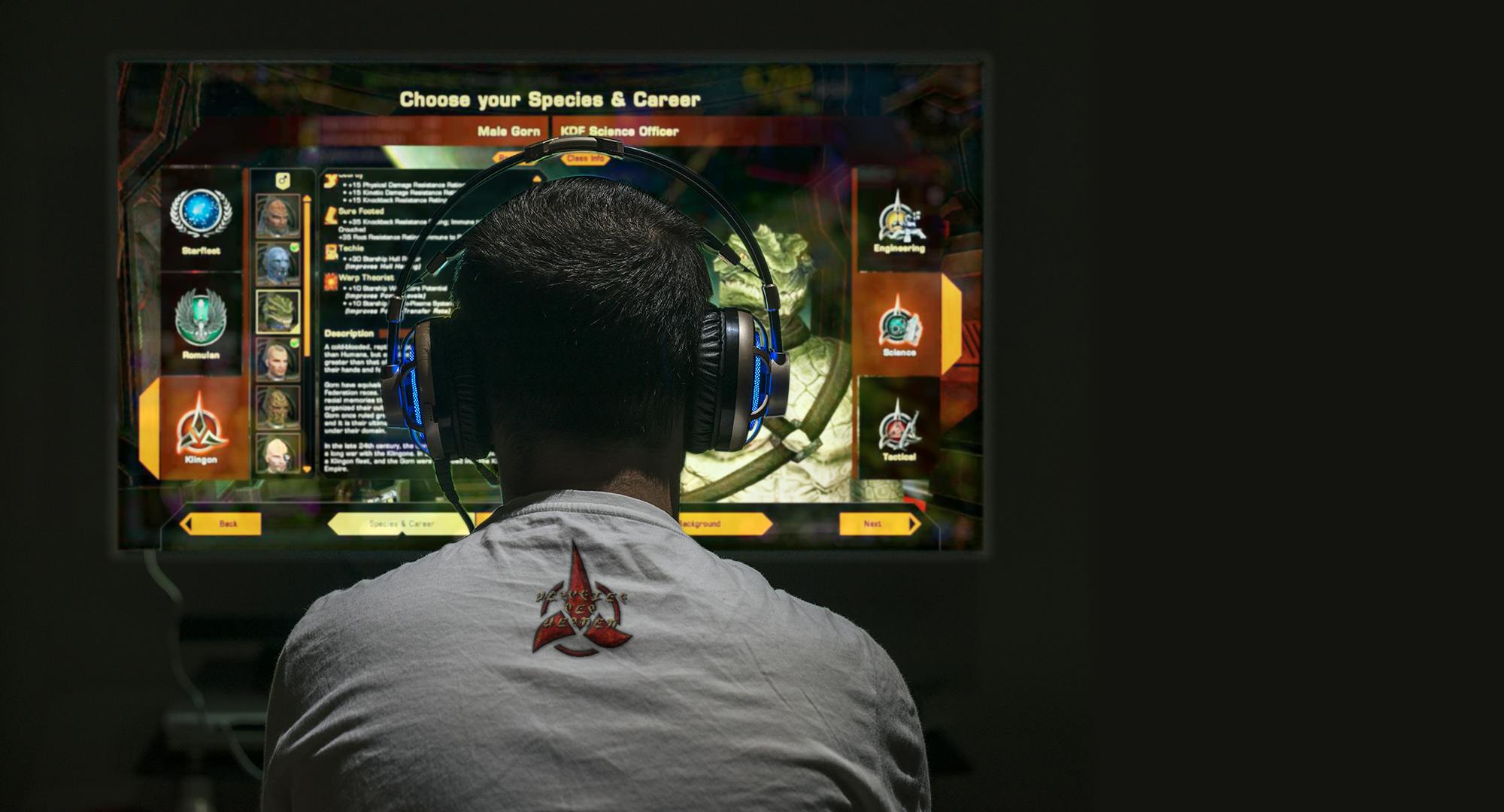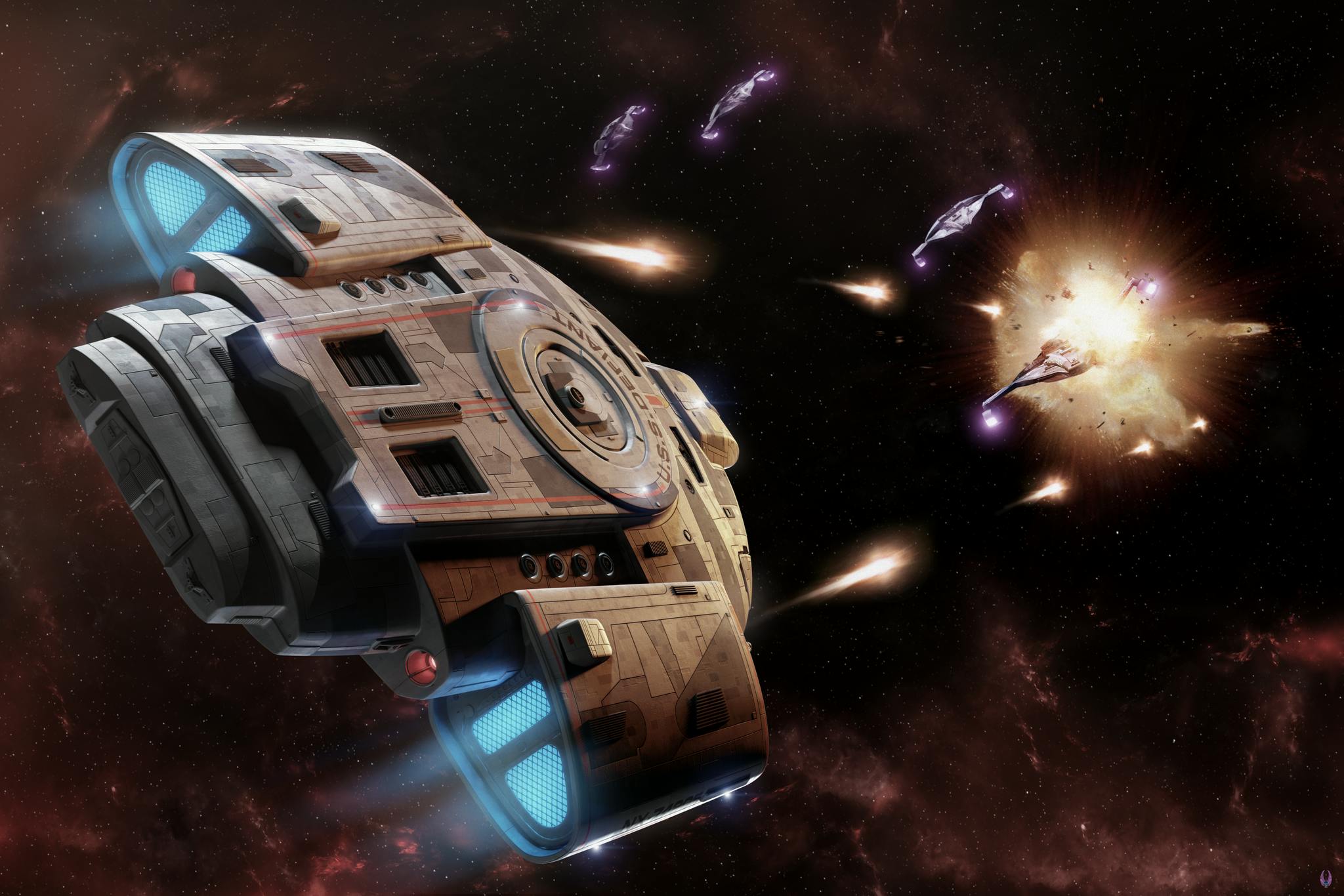Published May 11, 2020
Take Your Star Trek Adventures Online
How to keep your game going— even during quarantine.

StarTrek.com | Shutterstock/sezer66
Most of us are living through a strange, new world right now by spending a lot more time at home. Many aspects of our lives are changing, including how people play tabletop RPGs.
Star Trek Adventures groups keep their missions engaged through the use of several different platforms available right now. Some of them are free, some of them require a fee but all of them offer a chance to break away from real life drama and jump into an optimistic future for a while. We’ve brought together a list of website and app options to help GMs set up an online game, and some tips on how to run a game online as well.
Tips For Running RPGs online
- Get the basics. Playing online requires an internet capable device at the bare minimum. Many streaming games suggest headphones and a microphone for better sound quality but because everyone’s working from home now, these items can be hard to find at reasonable prices. Depending on the medium, smartphones and tablets can work as well.
- Test Early, Test Often. Bad connections can break the flow of the game. Take a moment to set up the room and make sure everyone’s stable before you start. For anyone starting a game online, Session Zero can be a good time for this. Games that have been moved online mid-play might want to set up a short non-gaming hangout to help set microphone levels and make sure webcams are working.
- Decide How To Roll Dice. Many of the options discussed have some form of dedicated dice roller available as part of the program. Some groups work on the honor system and let players roll their physical dice. Others have GMs do all the dice rolling. Make sure to choose a system or systems that work best for the specific players.
- It’s Okay To Take Breaks. Sitting in front of a screen can get exhausting. Ergonomics experts even recommend taking a short screen-and-sitting break every hour. Working this into a game session can do wonders for player engagement and attention spans. Calling for a 10 minute break every hour gives everyone a chance to use the bathroom, refill snacks, and maybe even talk about where the game goes in the next act.
Now that the logistics of this new gaming normal are worked out, you’ll want to decide on a platform to play on. Here are a few of our favorite options.

startrek.com
Zoom
Zoom’s teleconferencing application rose to prominence as more and more people shifted to working from home. That ubiquitous nature is the program’s main advantage as a gaming medium. A lot of people already have it and already know how to use it. It also has a virtual background feature that can be helpful for pictures and scene changes, though anyone using the background should set up their webcam facing a blank way for the best effect. Zoom doesn’t have a native dice rolling app but the longer this situation lasts, the sooner a solution might present itself.
Discord
This program has become the virtual chat app of choice in the past few years. Discord began as a way for players to talk to each other while also becoming a great place to play video games. Text, voice and video options offer multiple ways to play a game. GMs can set up ‘in game’ and ‘out of game’ channels to help keep the action organized (note: it can get a little busy on a server that has too many channels, so consider keeping the number limited!). Discord also works best through the app rather than the web browser and setting up a server can be a little time consuming.
Roll20
Roll20 is one of the most popular web-based tabletops because it was built to play the most popular RPG; Dungeons & Dragons. Wherever D&D goes other games are sure to follow, and the publisher of Star Trek Adventures officially supports it with virtual character sheets and deck tiles. Be advised that Roll20 has gone through some growing pains recently. As more D&D games move online, some weekends have seen server issues and other slow downs.
Fantasy Grounds
Fantasy Grounds has been doing virtual tabletops for over ten years. They are licensed by several tabletop game companies with official modules that help automate game elements, let GMs look up rules, and even provide 3d dice for a slightly more real world feel. This is an excellent choice for game groups that play a variety of titles. Star Trek Adventures doesn’t have an official plug-in at the time of this article but there are fans doing adaptations in their popular forums.
Astral
The newest kid on the virtual tabletop block is Astral. They offer features like 3d soundscapes, dynamic effects and thousands of battlemats, tiles and other assets to turn a tabletop game into a multimedia experience. Astal also allows uploads of PDF character sheets that make taking actions easier by clicking directly on the sheet to roll the dice. Most of these features and other pro elements are free through the end of May, so checking them out sooner rather than later is a good idea.
Rob Wieland (he/him) is an author, game designer and professional nerd who developed the adventure classifications for Star Trek Adventures. He lives in Milwaukee, Wisconsin with his wife, two cats and a future Starfleet Admiral.
